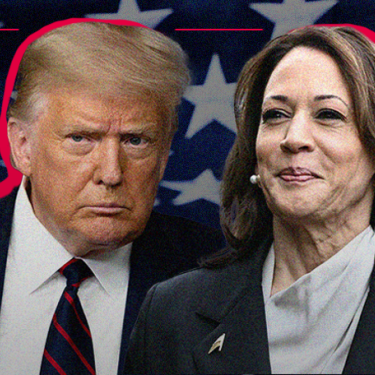USA: RSF urges both presidential campaigns to commit to strengthening press freedom

After the United States fell to an unprecedented 55th place in RSF’s World Press Freedom Index in 2024, the next American president must work to strengthen the country’s press freedom record at home and abroad. Reporters Without Borders (RSF) has outlined 10 non-partisan proposals for press freedom, and urges both presidential campaigns to commit to adopting them if elected.
The United States’ ranking fell by a worrying 10 spots in the 2024 edition of RSF’s World Press Freedom Index. Declining trust in media, rising threats and violence against journalists, and stalled legal reforms all point to the urgent need for the next presidential administration to make press freedom a deliberate policy focus. The policies RSF is proposing range from leading by example to legislative fixes that will foster a stronger climate for journalism and democracy.
“It is unacceptable that press freedom in the country of the First Amendment has deteriorated to the point where the U.S. ranks 55th in RSF’s World Press Freedom Index. We are urging both campaigns to commit to implementing concrete steps needed to protect journalism at home and abroad. The policies RSF is proposing are nonpartisan, common-sense ways the next president can reverse this unacceptable decline. The stakes of this election are too high to ignore these threats – there is simply no democracy without press freedom.”
Clayton Weimers
Executive Director, RSF USA
RSF’s 10-Point Plan for U.S. Press Freedom
- Consistently position the United States as a global leader in press freedom and speak out against press freedom violations wherever they occur.
- Commit to freeing wrongly detained American journalists and securing justice for American journalists killed abroad.
- Prioritize press freedom in American diplomacy at the bilateral and multilateral levels.
- Lead by example through regular press briefings, fair and apolitical media accreditation processes, and regular interviews with a variety of outlets.
- Treat journalists and members of the media with respect.
- Publicly reaffirm the right and necessity of journalists to do their jobs safely, including covering demonstrations and protests.
- Commit to signing the PRESS Act.
- Champion regulation of AI that protects the reliability of information.
- Establish a U.S. Special Envoy for Press Freedom or a similar office.
- Commit to reforming the Espionage Act to include a public interest defense.
The candidates’ records
Former President Donald Trump’s worrying record on press freedom is well established. He has consistently derided journalists and news outlets, famously calling the media “a true threat to democracy” and “the enemy of the people.” A second term in office could present an opportunity for Trump to strike a new tone. Unfortunately, his rhetoric towards the media on the campaign trail in 2024 has not improved.
However, in contrast to this threatening language, Trump had vowed to free Wall Street Journal reporter Evan Gershkovich before he was released in a multi-country prisoner swap in July 2024. RSF would urge him to bring similar zeal to freeing Austin Tice – presumed to be detained in Syria following his abduction 12 years ago–and securing justice for Christopher Allen, killed while reporting on the civil conflict in South Sudan in August 2017.
As RSF wrote in July of 2024 when Vice President Kamala Harris became the Democratic candidate for president, she has not frequently spoken directly on significant press freedom matters, so her record lies largely with that of the Biden administration – which has often talked the talk, but has not always walked the walk when it comes to actively protecting journalists. Harris recently posted on X, affirming her commitment to securing the release of Austin Tice and “every American wrongfully detained or held hostage abroad.”
The Biden administration's biggest press freedom success came in the form of a prisoner swap that freed Gershkovich and Radio Free Europe/Radio Liberty journalist Alsu Kurmasheva – both American journalists who had been wrongfully detained in Russia. The administration also brought the longstanding case against WikiLeaks publisher Julian Assange to a close by negotiating a plea deal that allowed for his release on June 25.
